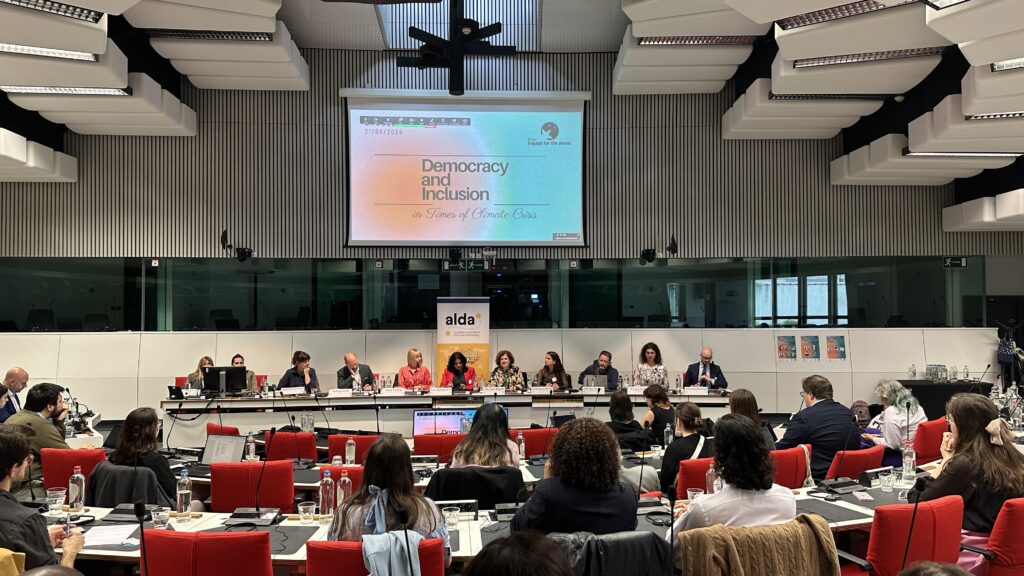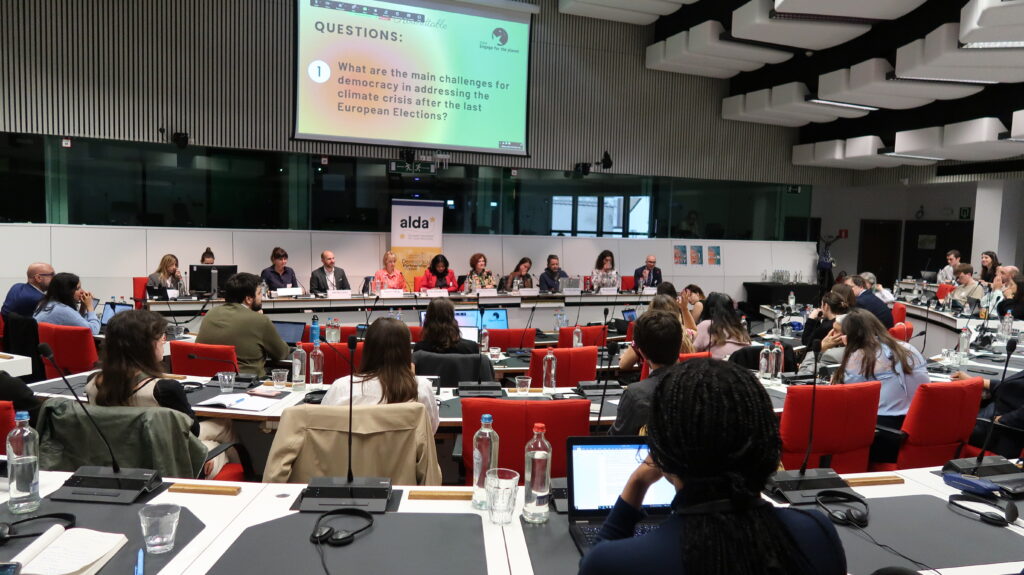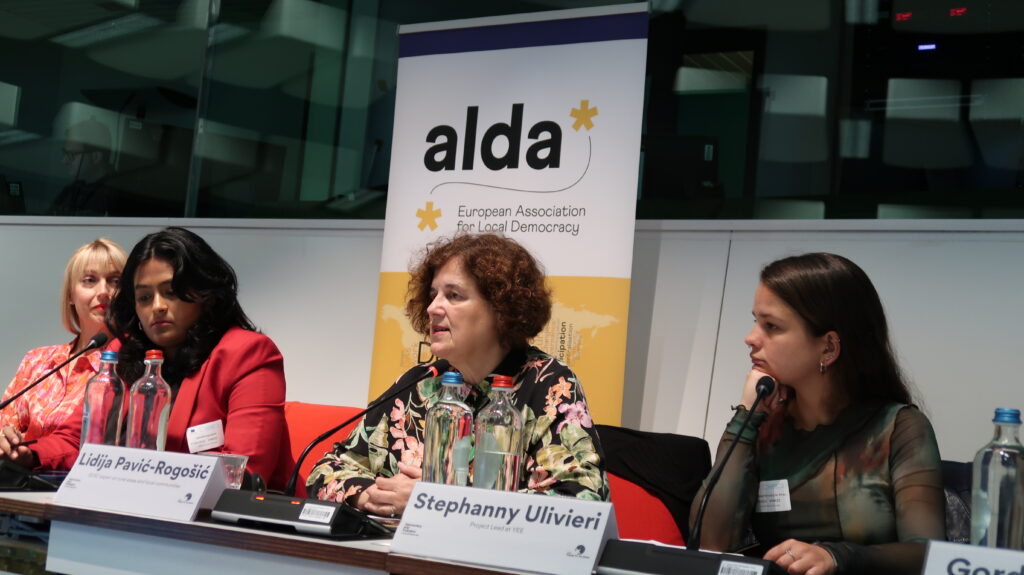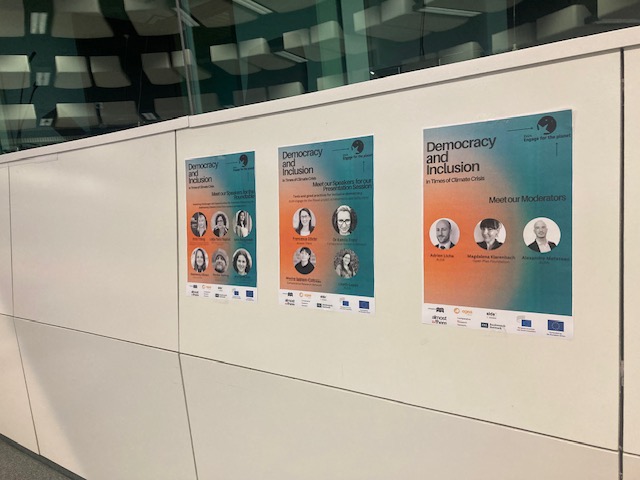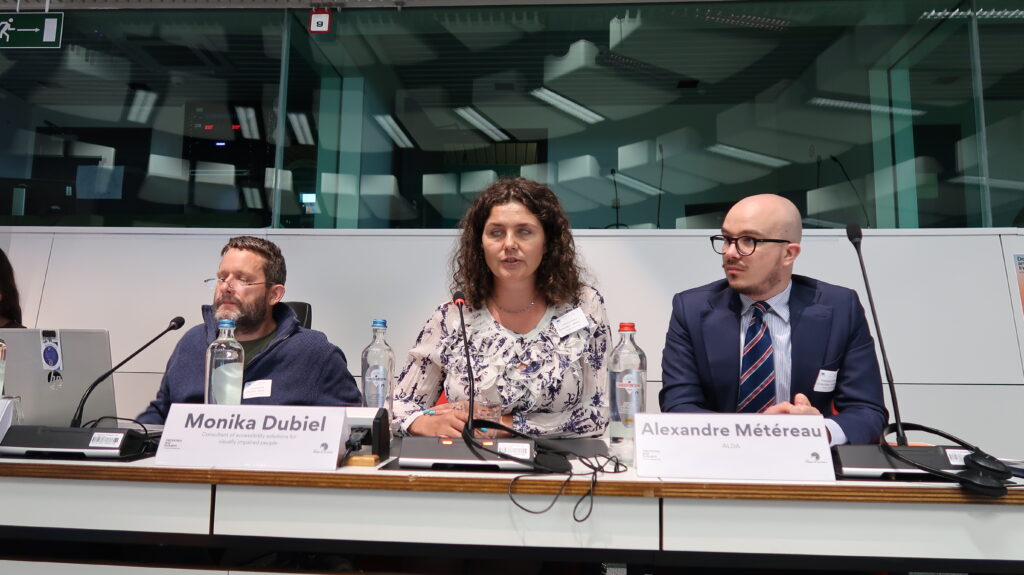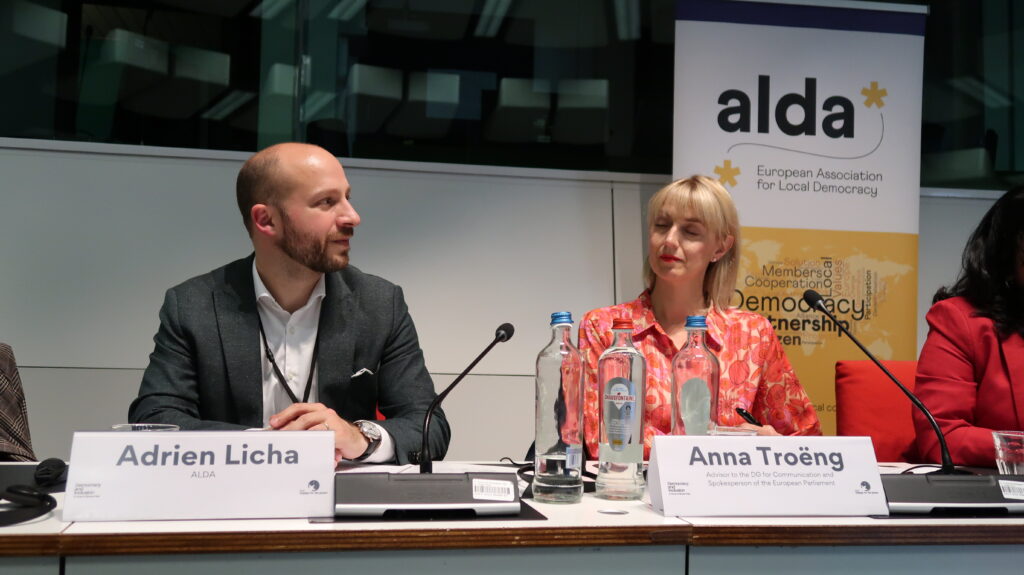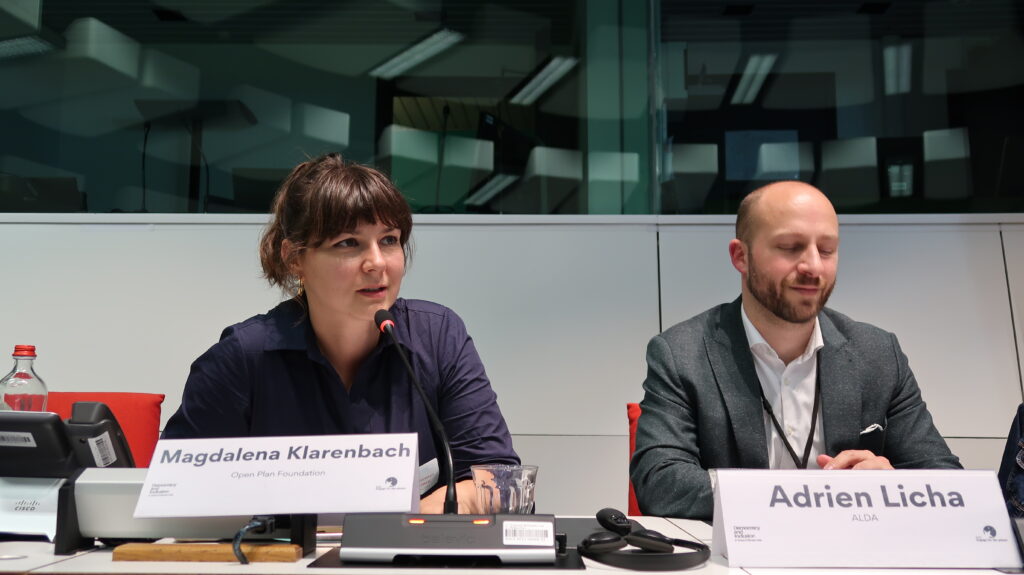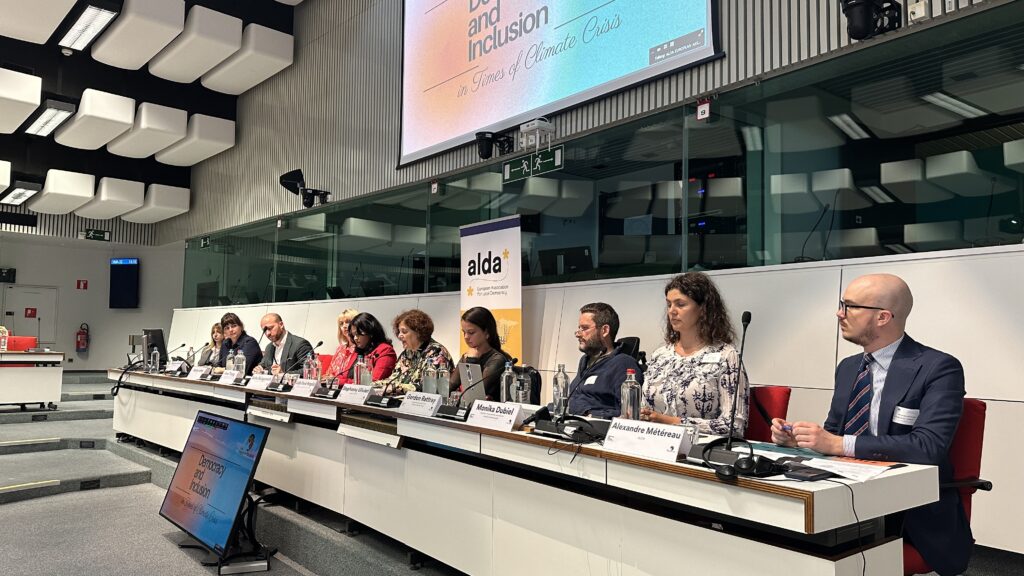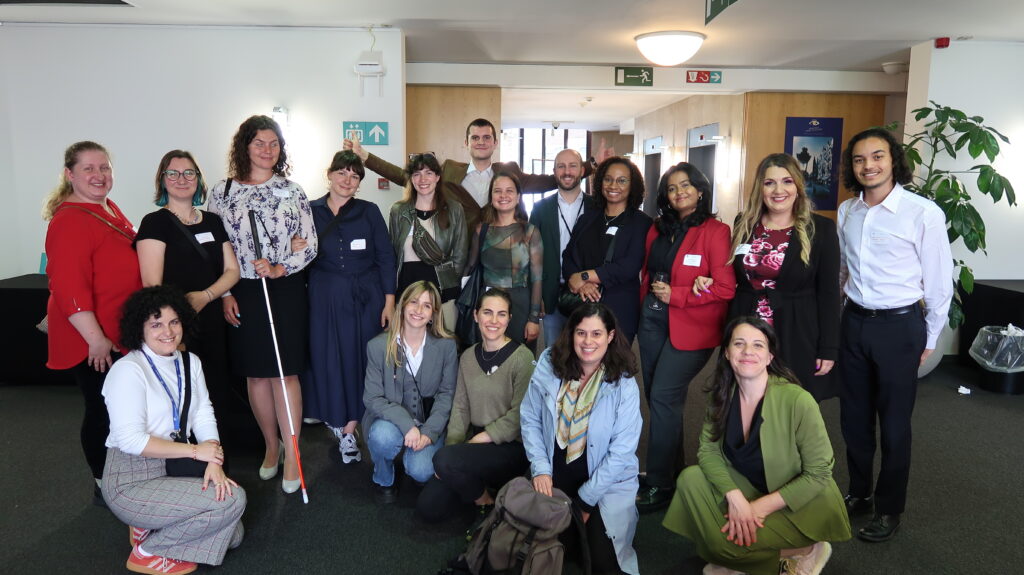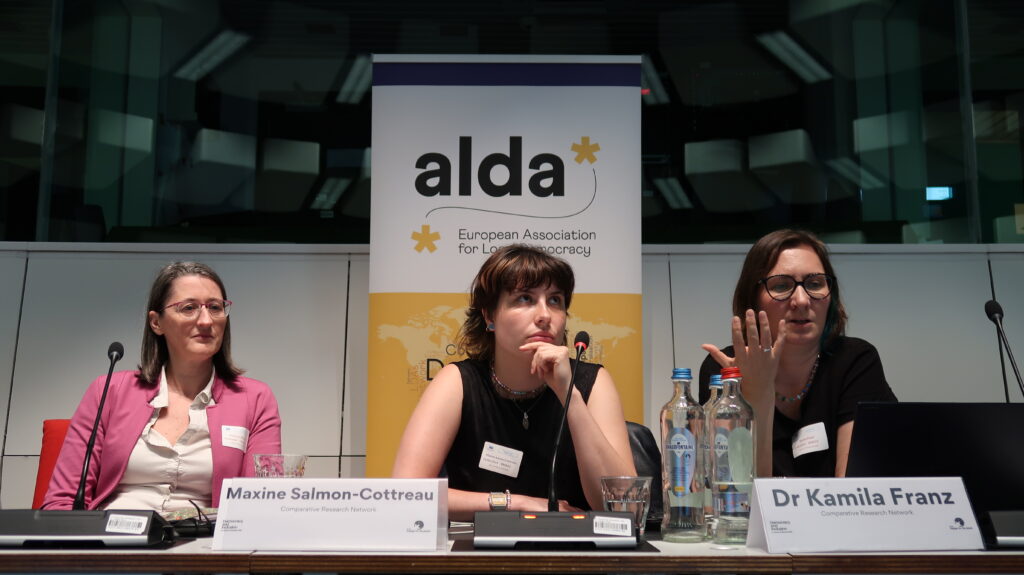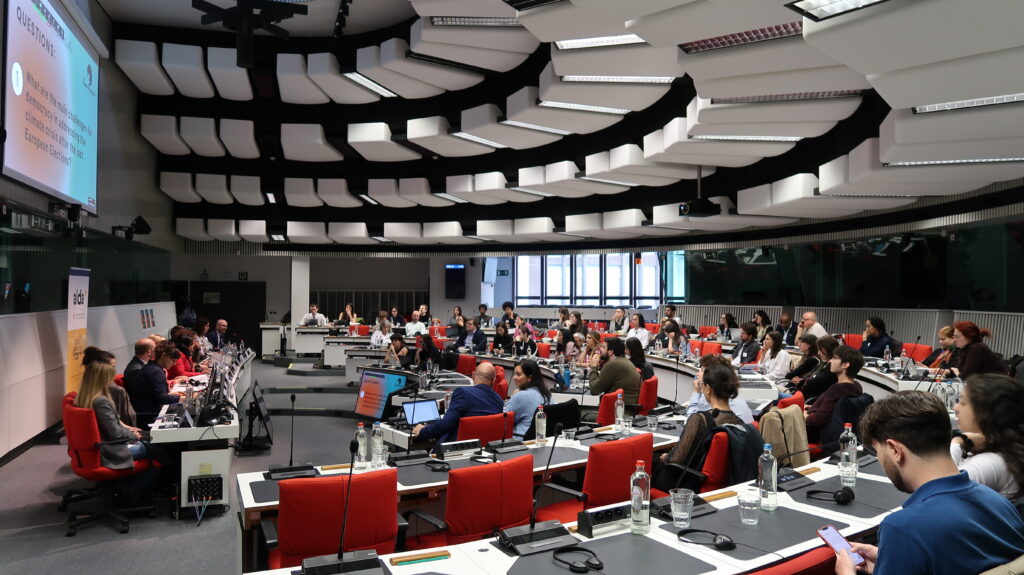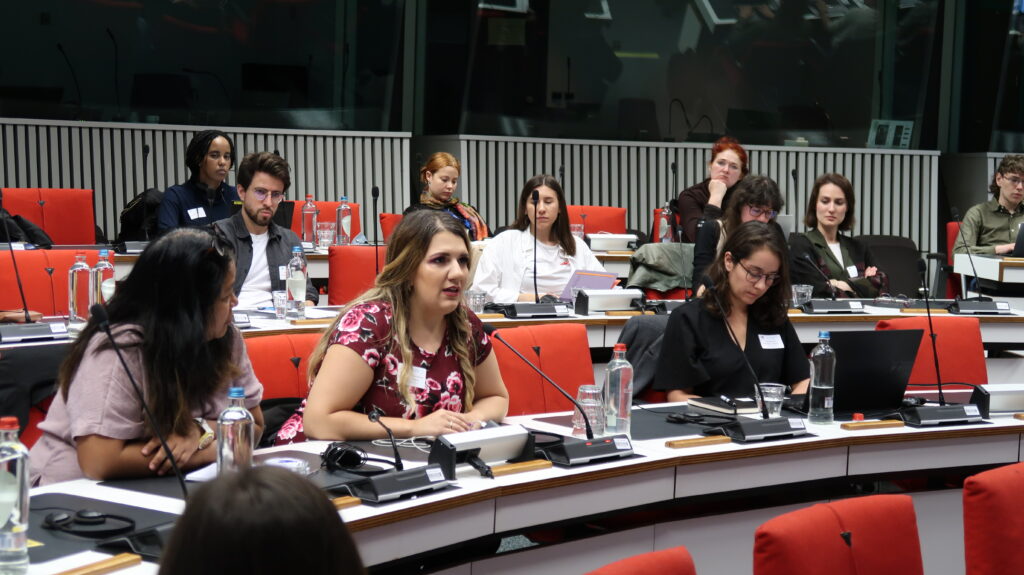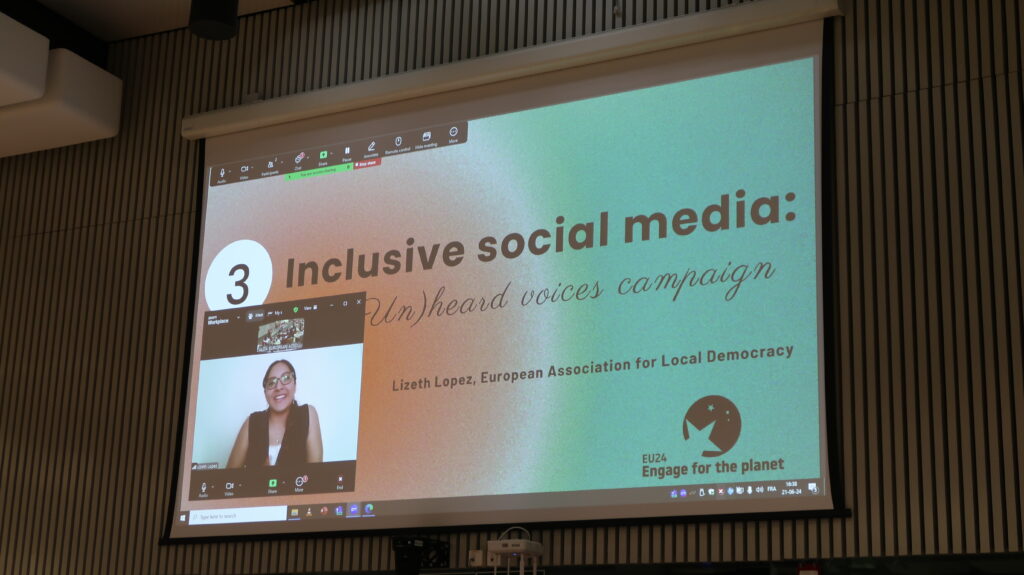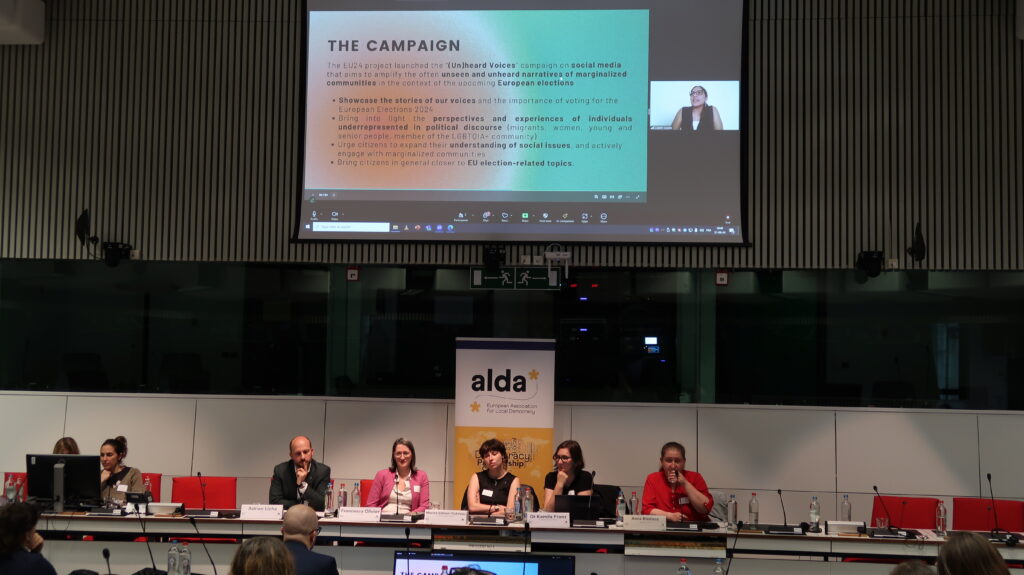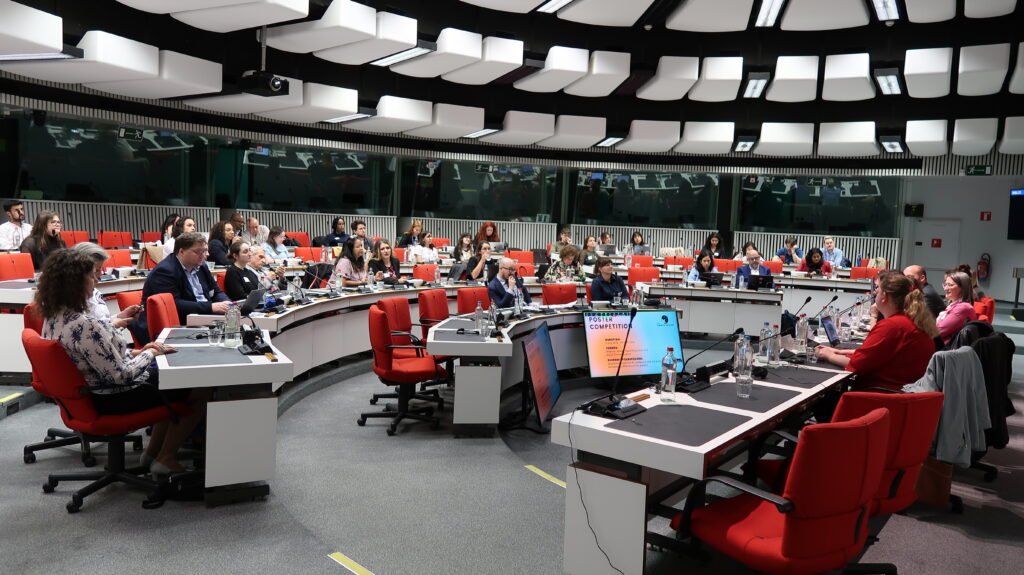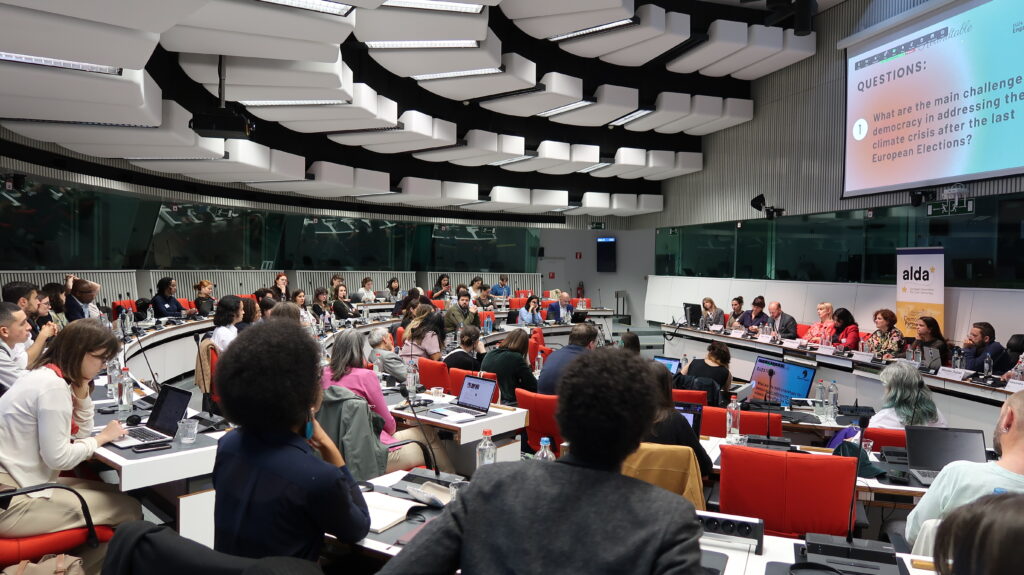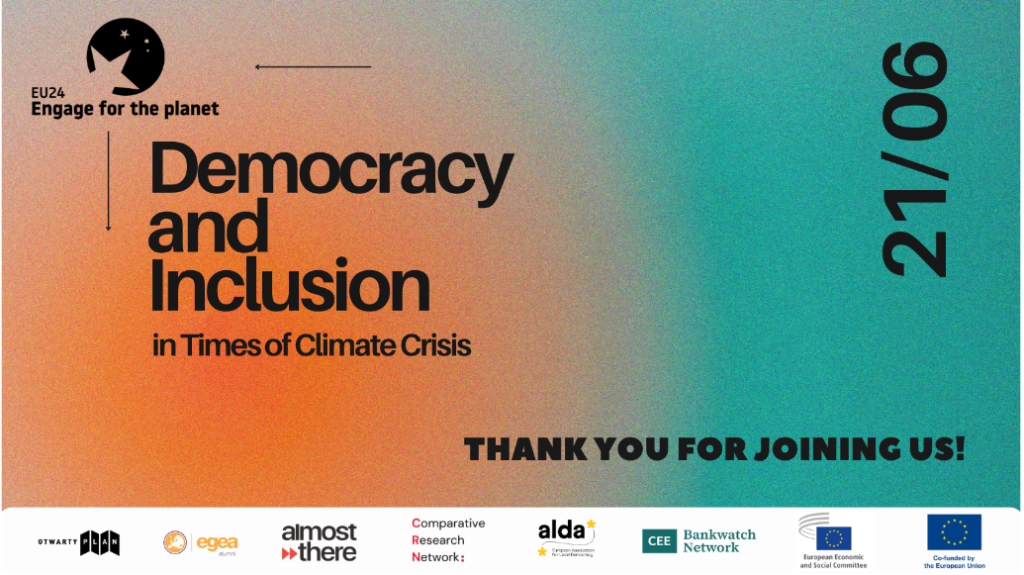The EU24 – Engage for the Planet project held its final conference on June 21, 2024, at the European Economic and Social Committee in Brussels. Hosted by our partners ALDA and Fundacja Otwarty Plan, the conference was titled “Democracy and Inclusivity in Times of Climate Crisis”. The event’s backdrop was the urgent need for inclusive democracy, dialogue and collaboration to tackle climate change, one of humanity’s greatest threats. The agenda included a roundtable discussion, a presentation session, and the international poster competition award ceremony.
The roundtable discussion offered an engaging exchange for Exploring challenges and opportunities for Inclusive Democracy in Addressing the Climate Crisis from Various Perspectives. Moderated by Magdalena Klarenbach (Fundacja Otwarty Plan) and Alexandre Meterau (ALDA), the session brought together a diverse panel of representatives including:
- Anna Troëng, Advisor to the Director General for Communication and Spokesperson of the European Parliament
- Lidija Pavić-Rogošić, an EESC expert on rural areas and local communities
- Saha Balaganesh, Network Engagement Lead at The Democratic Society
- Stephanny Uliviery, Project Lead at YEE
- Gordon Rattray, Programme Coordinator at the European Disability Forum
- Monika Dubiel, a consultant on accessibility solutions for visually impaired people.
The discussion focused on several critical questions designed to capture the perspectives of the groups represented by the panellists. The panellists addressed the key challenges for democracy and inclusion in tackling the climate crisis, particularly following the recent European elections. They explored how democratic institutions can better integrate diverse social and cultural perspectives into decision-making processes related to climate action. In addition, the panelists shared best practices for involving local communities and marginalised groups in environmental decision-making, underlining the need for equitable and effective climate policies.
Audience engagement was a key component of the roundtable, with participants encouraged to interact directly with the panelists. Attendees, both in person and streamed online, posed questions and shared insights, enriching the dialogue and highlighting the collective effort required to address the climate crisis inclusively from their perspective.
Following the roundtable, the presentation session, moderated by Adrien Licha (ALDA), provided a comprehensive overview of the EU24 – Engage for the Planet project’s activities, achievements, and challenges. This session aimed to present the tools and good practices for inclusive democracy, with a reflection on the EU24 Engage for the Planet project.
Francesca Olivier (Almost There) presented on inclusive public events, discussing how blended format debates on food production, energy, climate justice, and mobility have fostered inclusive participation during the activities of the project in the participating countries: Poland, Strasbourg, Germany, Sweden and the Netherlands. This included recommendations on inclusive methodologies used during these events.
Dr Kamila Franz and Maxine Salmon-Cottreau (Comparative Research Network) showcased inclusive online tools, such as an e-democracy platform designed to enhance civic engagement and created as part of the activities of the project. The platform was highlighted as a resource for organizing and facilitating various types of events, as an Informative hub, and as a place for collaboration. It is qualified as accessible, easy, open, safe, and updated.
The last part of the session highlighted the importance of inclusive social media. Lizeth Lopez (ALDA) presented the (Un)heard Voices campaign. This initiative aimed to amplify the often unheard and unseen voices of underrepresented groups in the political and climate discourse. The presentation emphasized the importance of disseminating the perspectives of underrepresented groups using channels such as social media and understanding the possible challenges as well as positive outcomes it might bring. To conclude the session, Anna Bieniasz (EGEA Alumni), reflect on inclusiveness and diversity, emphasizing the project’s impact and future directions.
The event concluded with an award ceremony for the international poster competition which was carried out during the project. Representatives of the Comparative Research Network introduced the competition concept, themes involved and submissions reached. A presentation of the winners’ posters from France, Germany, the Netherlands, and Sweden was announced.
The creative and impactful posters of all the submissions were displayed in a digital exhibition, providing a visual representation of the project’s themes and outcomes. Attendees had the opportunity to view these posters and videos from the (Un)heard Voices campaign while enjoying refreshments, rounding off a successful event that underscored the critical intersection of democracy, inclusivity, and climate action.
The “Democracy and Inclusivity in Times of Climate Crisis” event provided invaluable contributions thanks to the participation of the attendees.We extend our gratitude to the panellists, moderators, and speakers who provided profound insights and fostered rich discussions. Special thanks to the European Economic and Social Committee for hosting this impactful gathering, and to the attendees, both in-person and online, whose active engagement made the event a resounding success.
